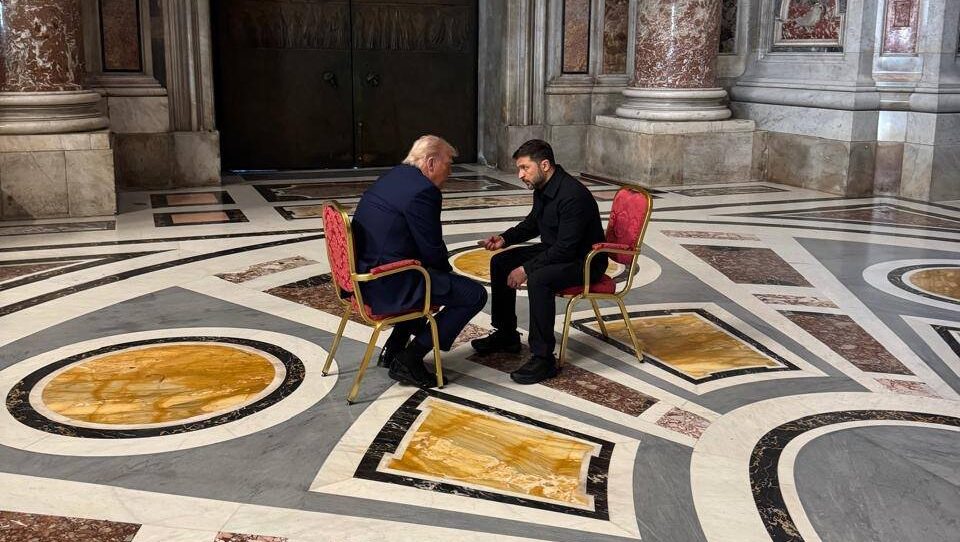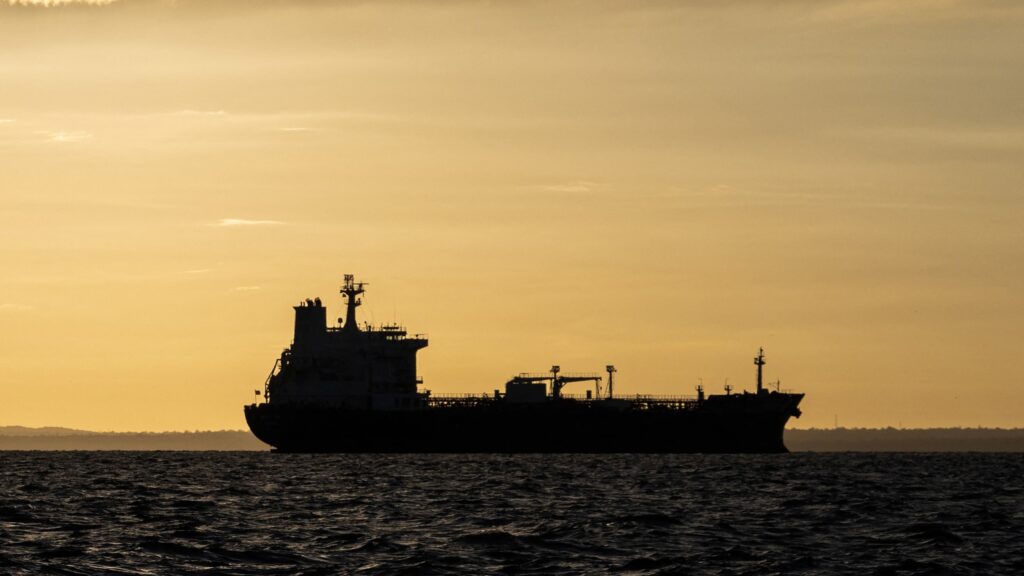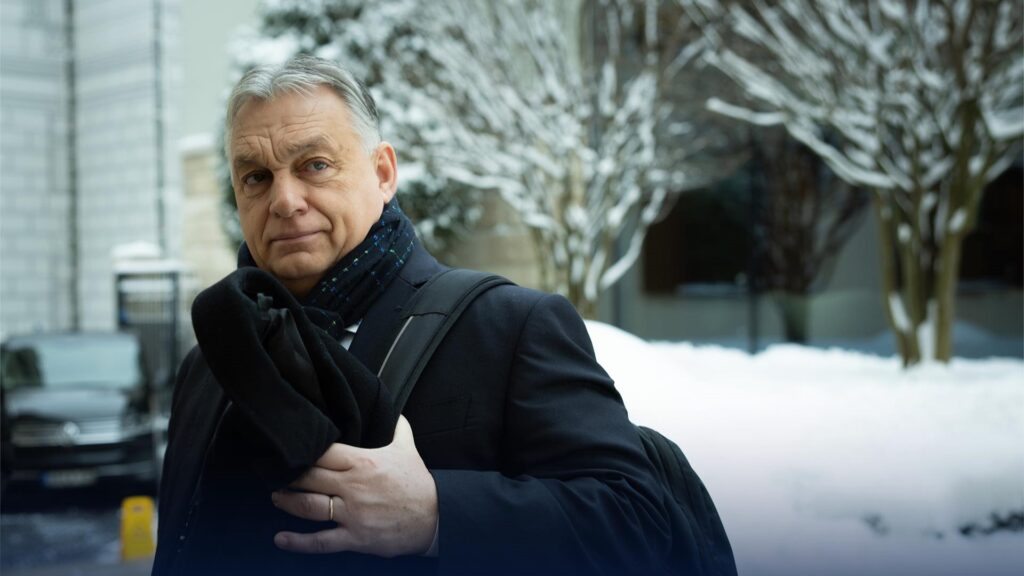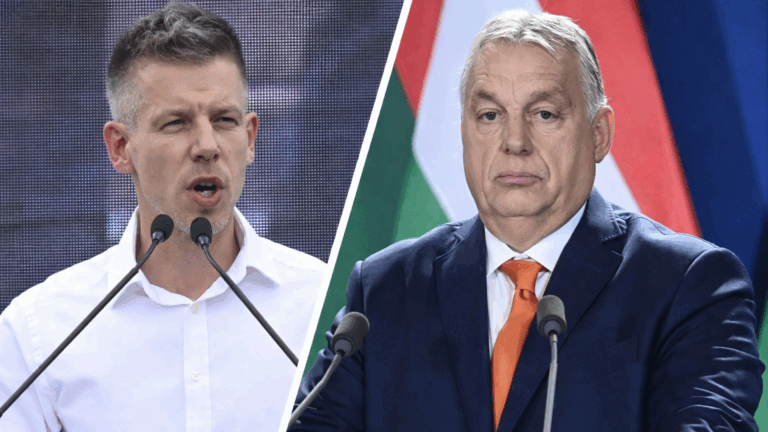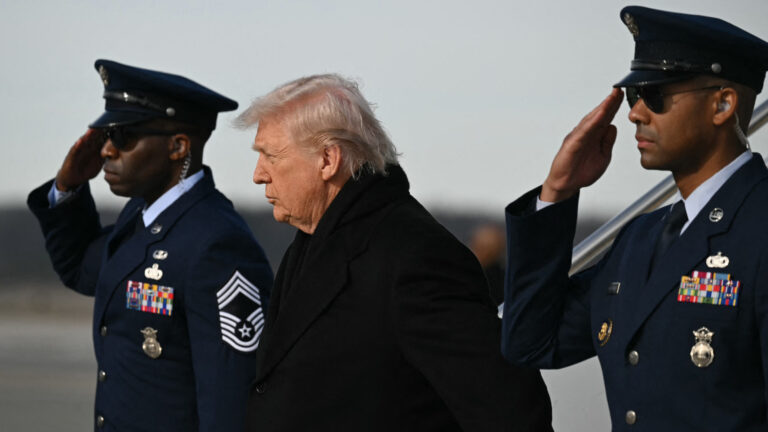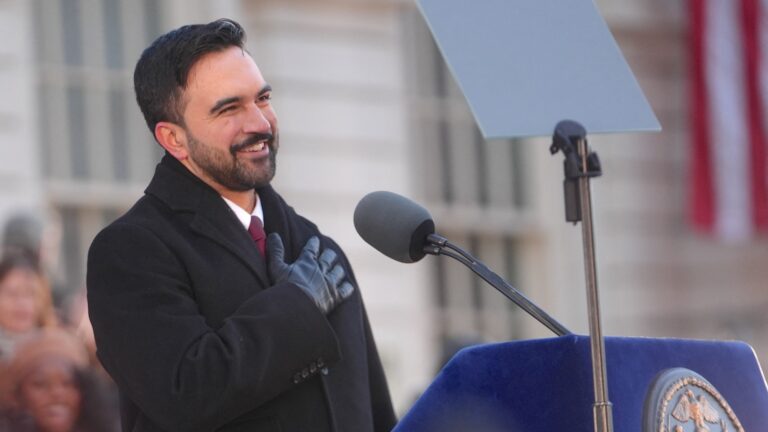US President Donald Trump said on Monday that he welcomes the idea of Pope Leo XIV hosting negotiations to bring an end to the war in Ukraine. He made the remark following a two-hour phone call with Russian President Vladimir Putin, as peace talks gain new momentum, structure, and a new epicentre: the Vatican.
‘I think it would be maybe helpful,’ Trump told reporters on 19 May. ‘There’s tremendous bitterness, anger, and I think maybe that could help with some of that anger. So having it in the Vatican—in Rome—would be a great idea.’
Pope Leo XIV had offered to mediate between Kyiv and Moscow last week, ahead of the meeting between Russian and Ukrainian delegations in Istanbul on 16 May. ‘The Holy See is willing to help enemies meet, so they may look each other in the eye and so people may be given back the dignity they deserve: the dignity of peace,’ the Pope wrote in a post on X. He added: ‘With heart in hand, I say to the leaders of nations: let us meet; let us dialogue; let us negotiate!’ On Tuesday, Italian Prime Minister Giorgia Meloni also stated that European leaders support the Vatican’s mediation efforts.
First Direct Ukrainian–Russian Talks Since 2022
Ukraine and Russia held their first direct peace talks since 2022 in Türkiye last Friday. The meeting, which lasted under two hours, resulted in a significant agreement: both sides committed to a large-scale prisoner exchange, with 1,000 prisoners to be released by each country. However, the negotiations failed to produce a ceasefire or meaningful progress towards ending the ongoing war.
The talks followed discussions of a potential face-to-face meeting between Ukrainian President Volodymyr Zelenskyy and Vladimir Putin, after Zelenskyy extended an invitation to his Russian counterpart in early May. The Kremlin sent mixed signals in the days leading up to the proposed meeting, but eventually announced on 15 May that Putin would not attend the talks in Türkiye. In turn, Zelenskyy also chose not to attend—in fact, he is officially barred from doing so by a 2022 decree he signed prohibiting direct negotiations with Putin.
Following his phone call with Putin on Tuesday, Trump announced that ceasefire negotiations between Russia and Ukraine would begin ‘immediately’—a claim he similarly made in February regarding US–Russian talks, which did, in fact, begin shortly thereafter in Saudi Arabia.
Putin thanked Trump for supporting the resumption of direct talks between Moscow and Kyiv. He noted Trump’s acknowledgement of Russia’s stated interest in peace, but emphasized that the central question remained how to move forward.
‘We have agreed with the President of the United States that Russia will propose—and is ready to work with the Ukrainian side on—a memorandum for a possible future peace accord, defining several positions, such as the principles of settlement and the timeline for a peace agreement,’ Putin told reporters near the Black Sea resort of Sochi.
A New Structure of Peace Talks
Now, more than 100 days into Trump’s second presidency, the structure of peace negotiations is indeed shifting. As previously signalled by high-ranking US officials, Washington is stepping back from acting as an intermediary and instead focusing on helping organize bilateral talks. This shift opens the door for the European Union to play a greater role in the negotiations. Zelenskyy indicated this change in a post on Tuesday, stating that after the Trump–Putin call, he and the US President held a joint conversation with European leaders, including French President Emmanuel Macron, British Prime Minister Keir Starmer, Italian Prime Minister Giorgia Meloni, Finnish President Alexander Stubb, and European Commission President Ursula von der Leyen—a rare occurrence since negotiations began.
Volodymyr Zelenskyy / Володимир Зеленський on X (formerly Twitter): "I spoke with @POTUS twice today. First, we had a one-on-one call before his conversation with the head of Russia, and later we spoke together with President Trump and European leaders President @EmmanuelMacron, Prime Minister @GiorgiaMeloni, Federal Chancellor @bundeskanzler,... pic.twitter.com/mm6a0Pro84 / X"
I spoke with @POTUS twice today. First, we had a one-on-one call before his conversation with the head of Russia, and later we spoke together with President Trump and European leaders President @EmmanuelMacron, Prime Minister @GiorgiaMeloni, Federal Chancellor @bundeskanzler,... pic.twitter.com/mm6a0Pro84
‘Together with European leaders, we also discussed possible next steps—in particular, meetings between negotiators and an objective assessment of each side’s proposals,’ Zelenskyy wrote. ‘I have given instructions to form a permanent, expanded national negotiation group,’ he announced in a separate post. It is now clear that the US–Russia and US–Ukraine formats have ended, and that broader negotiations involving European stakeholders are beginning.
Every Road Leads to Rome
Beyond the structure, the epicentre of negotiations also appears to be shifting—from Saudi Arabia to the Vatican. This is reflected not only in Trump’s recent statement but also in recent developments pointing to Rome’s growing role.
Trump and Zelenskyy agreed on a US–Ukraine minerals deal on the sidelines of Pope Francis’s funeral at the end of April. The Vatican meeting helped relaunch stalled diplomatic momentum, which had been frozen for months following the infamous Oval Office clash involving Trump, Zelenskyy, and Vice President JD Vance.
The minerals deal was a key development, allowing the United States to continue providing military support to Ukraine while receiving something in return—essentially enshrining the principle of ‘no blank check’, a core Trump campaign slogan. The deal, which lays the groundwork for joint extraction and exploration of natural resources and critical minerals in Ukraine, gives the United States a vested interest not only in achieving peace but also in restoring Kyiv’s control over annexed territories in eastern and southern Ukraine, where many of the reserves—particularly lithium—are located.
Despite lasting only 15 minutes, the Vatican meeting was described as ‘historic’ by Zelenskyy. Following the discussions, Trump delivered a rare public condemnation of Russian missile strikes on Ukraine, stating: ‘There was no reason for Putin to be shooting missiles into civilian areas, cities, and towns over the last few days.’
A month and a half later, another pivotal meeting took place during the inauguration of Pope Leo XIV. VP JD Vance sat down with Zelenskyy for the first time since their contentious encounter in Washington in February. After the meeting, Vance emphasized growing American impatience with the stagnation of peace efforts: ‘We’re more than open to walking away,’ he warned.
During his visit, Vance also held talks with Pope Leo focused on international issues. Both parties reaffirmed their commitment to humanitarian law and international law in conflict zones and expressed a shared dedication to achieving negotiated solutions.
Pope Leo Brings New Momentum in Peace Talks
Since his election in early May, it has been clear that Pope Leo XIV intends to take a more active role in global affairs, leveraging the Vatican’s status as a neutral venue for peace negotiations between Ukraine and Russia. In his first speech after being elected, he underscored the need for peace and dialogue ‘without fear’.
Peacebuilding and humanitarian diplomacy were not unusual to the papacy of the late Pope Francis either, particularly regarding the war in Ukraine. Hungarian Prime Minister Viktor Orbán even travelled to the Vatican in December 2024 as part of his second peace mission. However, due to Pope Francis’s declining health, his role was limited—unlike that of his successor.
On 12 May, Pope Leo held a phone call with Zelenskyy to discuss the humanitarian and political consequences of the war. This was followed by a face-to-face meeting during Leo’s inauguration. ‘We thank the Vatican for its willingness to serve as a platform for direct negotiations between Ukraine and Russia,’ the Ukrainian president said afterwards. ‘We are ready for dialogue in any format for the sake of tangible results. We appreciate the support for Ukraine and the clear voice in defence of a just and lasting peace.’
Russian President Vladimir Putin officially congratulated Pope Leo XIV on his election. In a message conveyed through the Kremlin, Putin expressed confidence that the constructive dialogue and cooperation established between Russia and the Vatican would continue to develop based on shared Christian values. However, the two have yet to meet, and Pope Leo has not addressed Russia directly since taking office—prompting many to claim he is too pro-Ukraine to serve as a neutral mediator.
Still, playing a mediatory role in major geopolitical conflicts is hardly unprecedented for the Vatican. In 1962, Pope John XXIII offered the Vatican’s services to mediate between the United States and the Soviet Union during the Cuban Missile Crisis—an initiative that ultimately succeeded. Early in his papacy, Pope Francis played a key role in the secret negotiations that led to the restoration of diplomatic relations between Washington and Havana after decades of Cold War hostility.
Pope John Paul II also successfully intervened in a territorial dispute between Argentina and Chile over the Beagle Channel. His envoy, Cardinal Antonio Samoré, facilitated negotiations that culminated in the 1984 Treaty of Peace and Friendship, averting a potential war.
Whether Pope Leo XIV can continue that legacy remains to be seen. But it is already encouraging to see the Vatican embrace such a monumental and seemingly intractable challenge.
Related articles:

